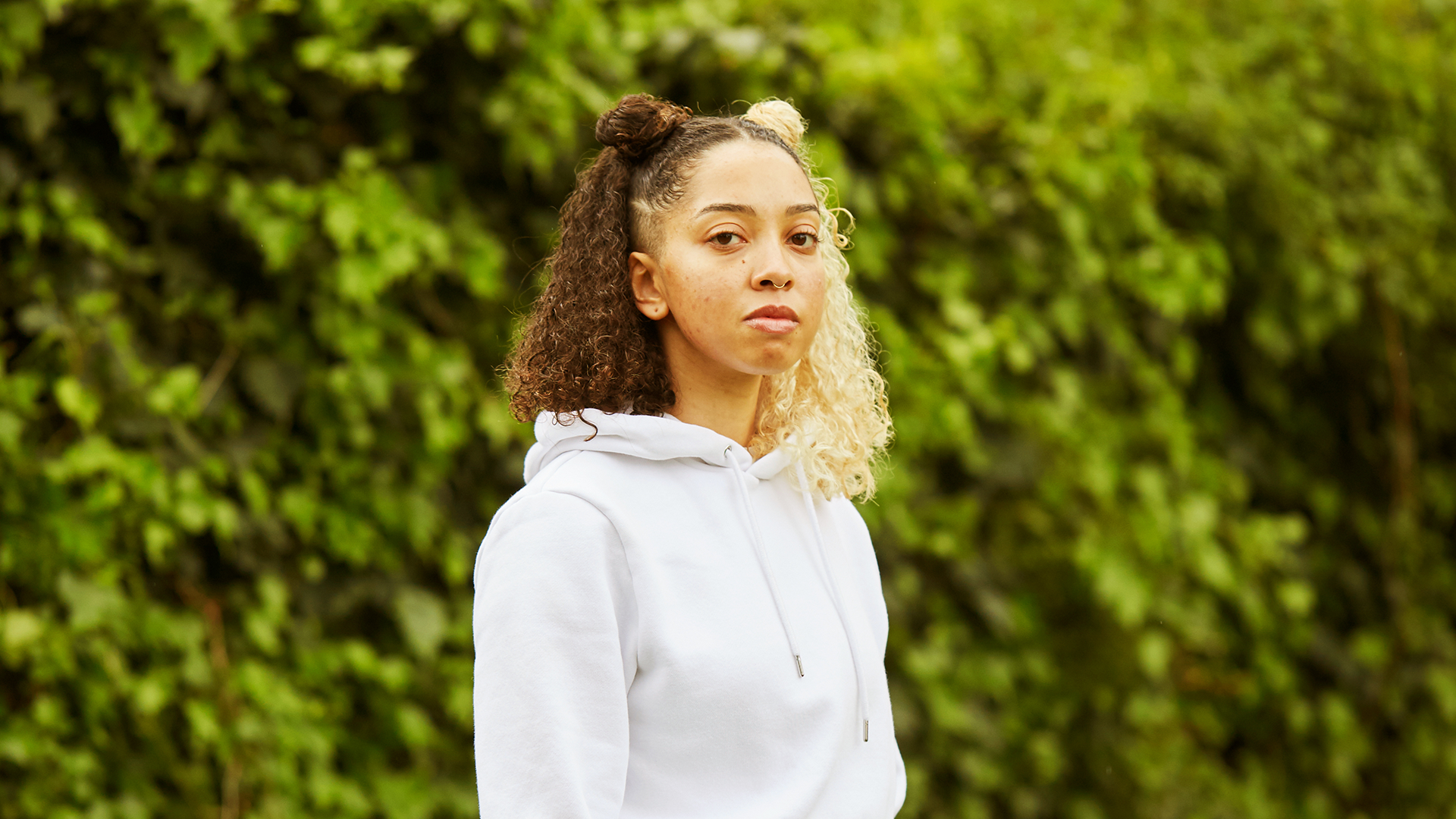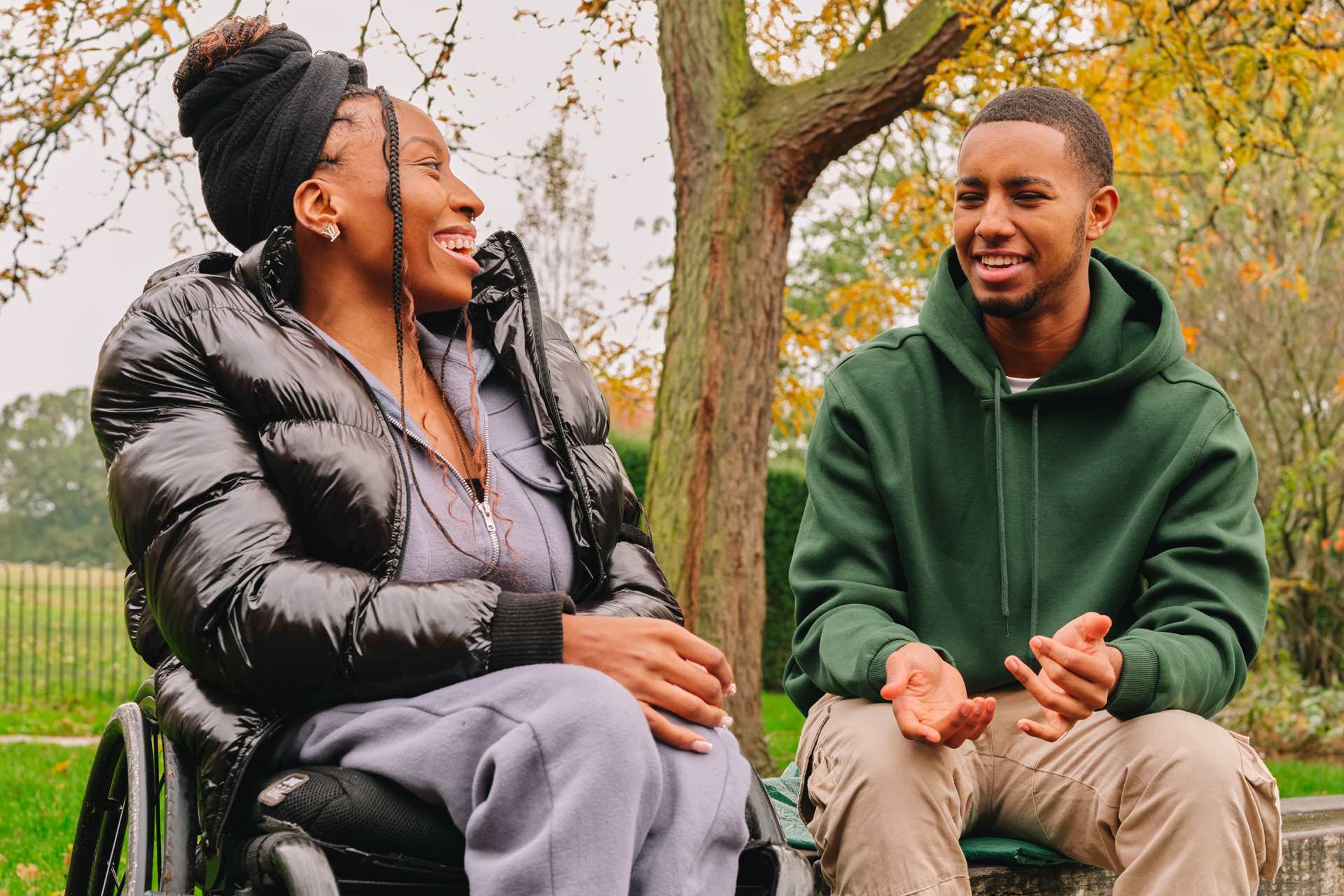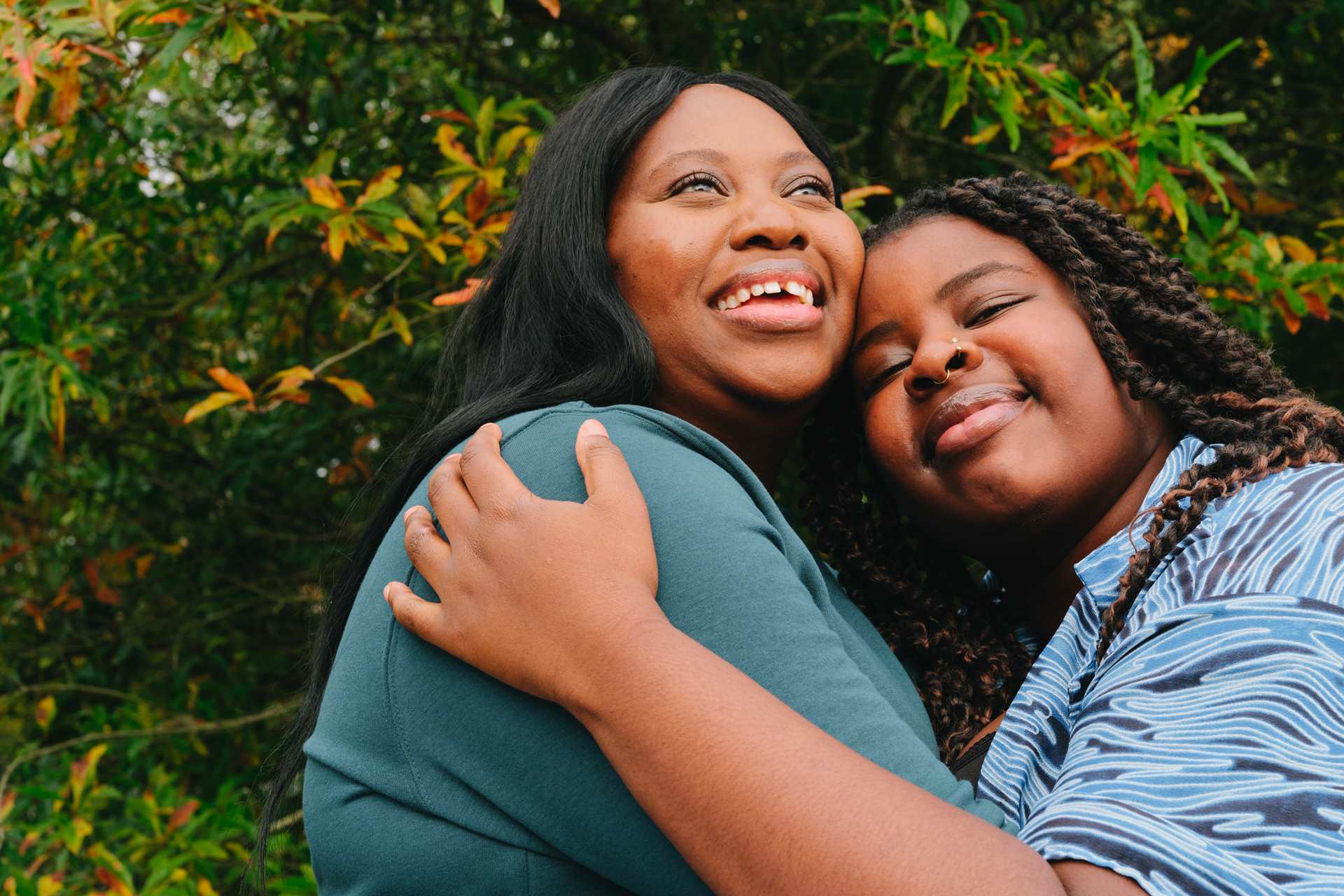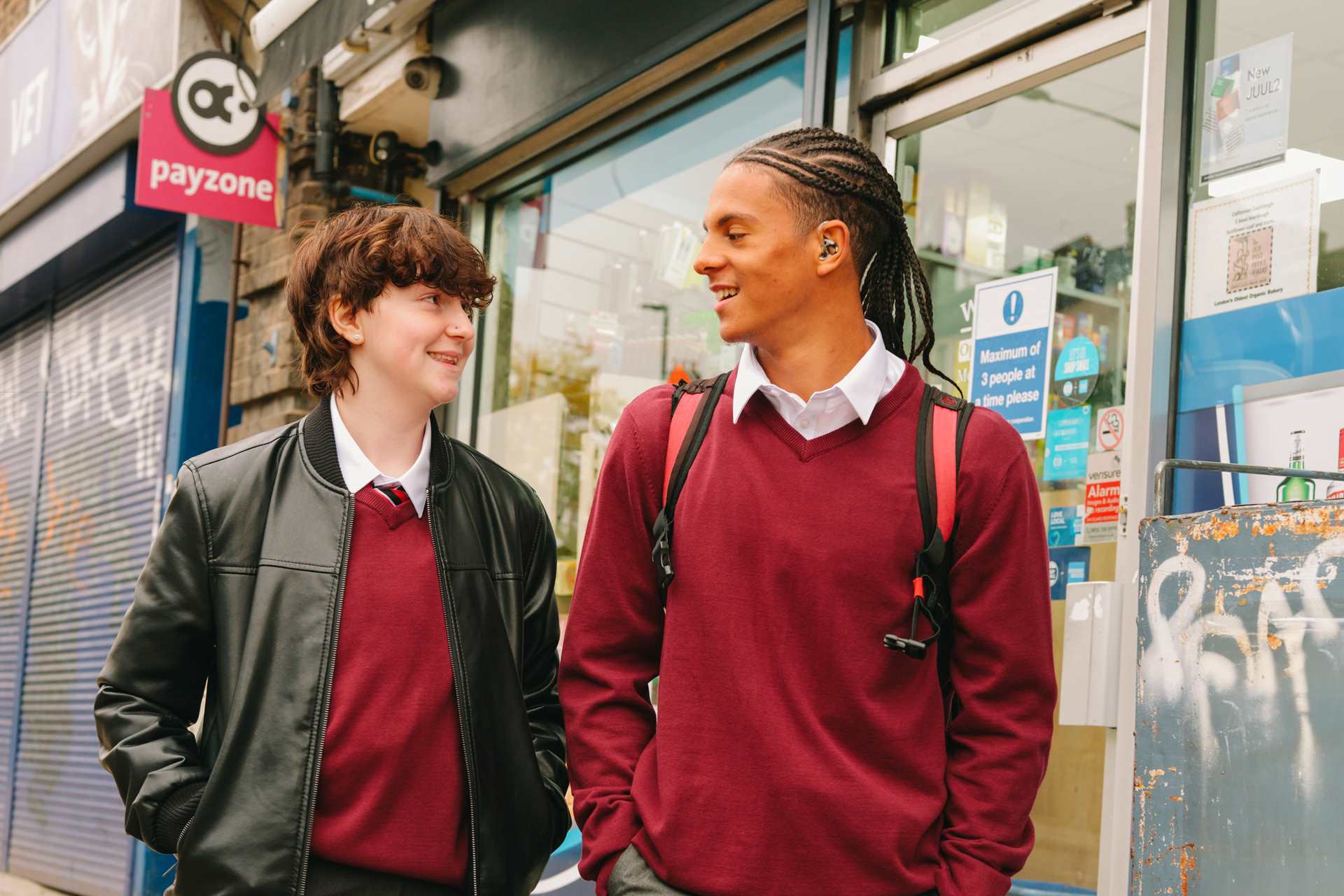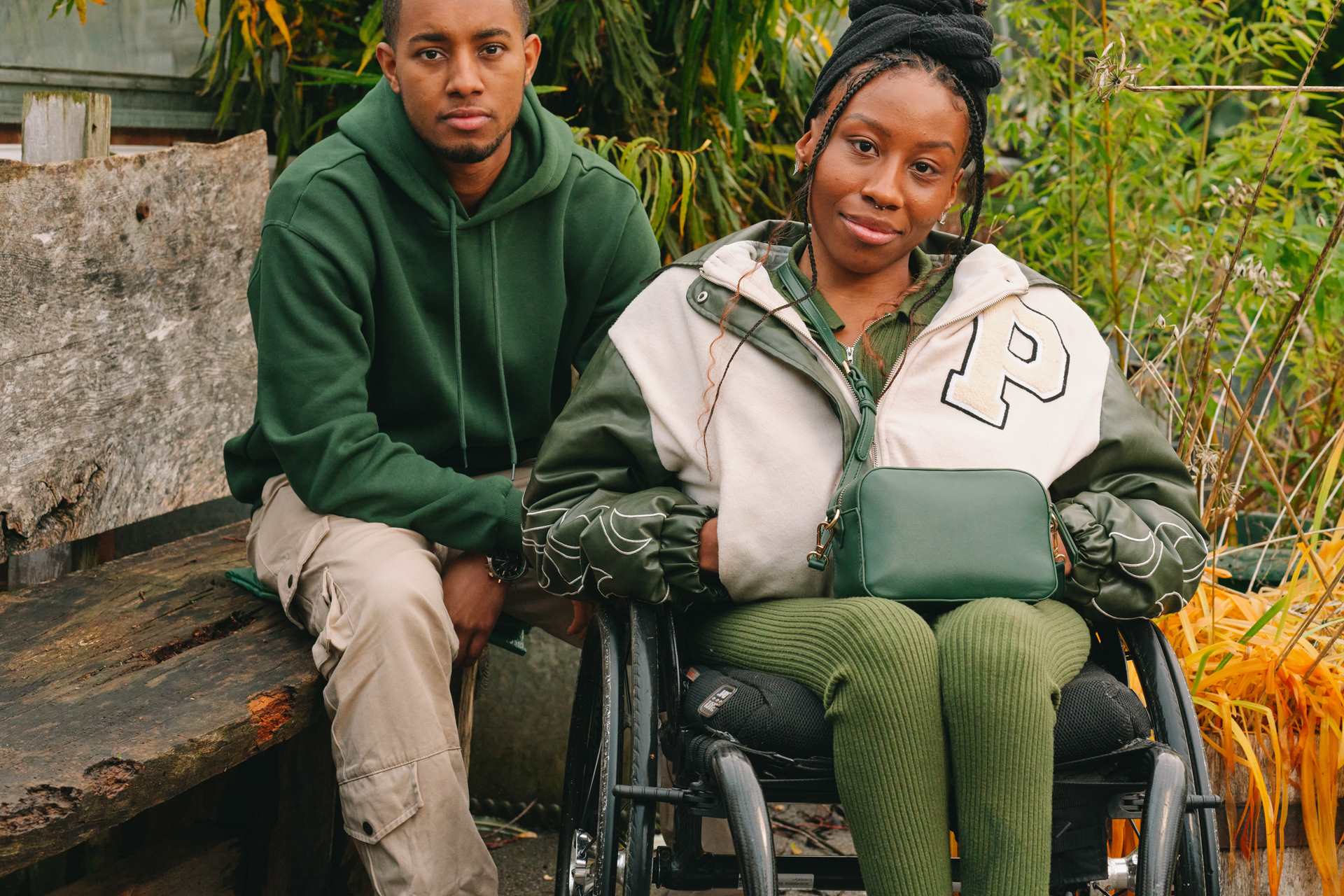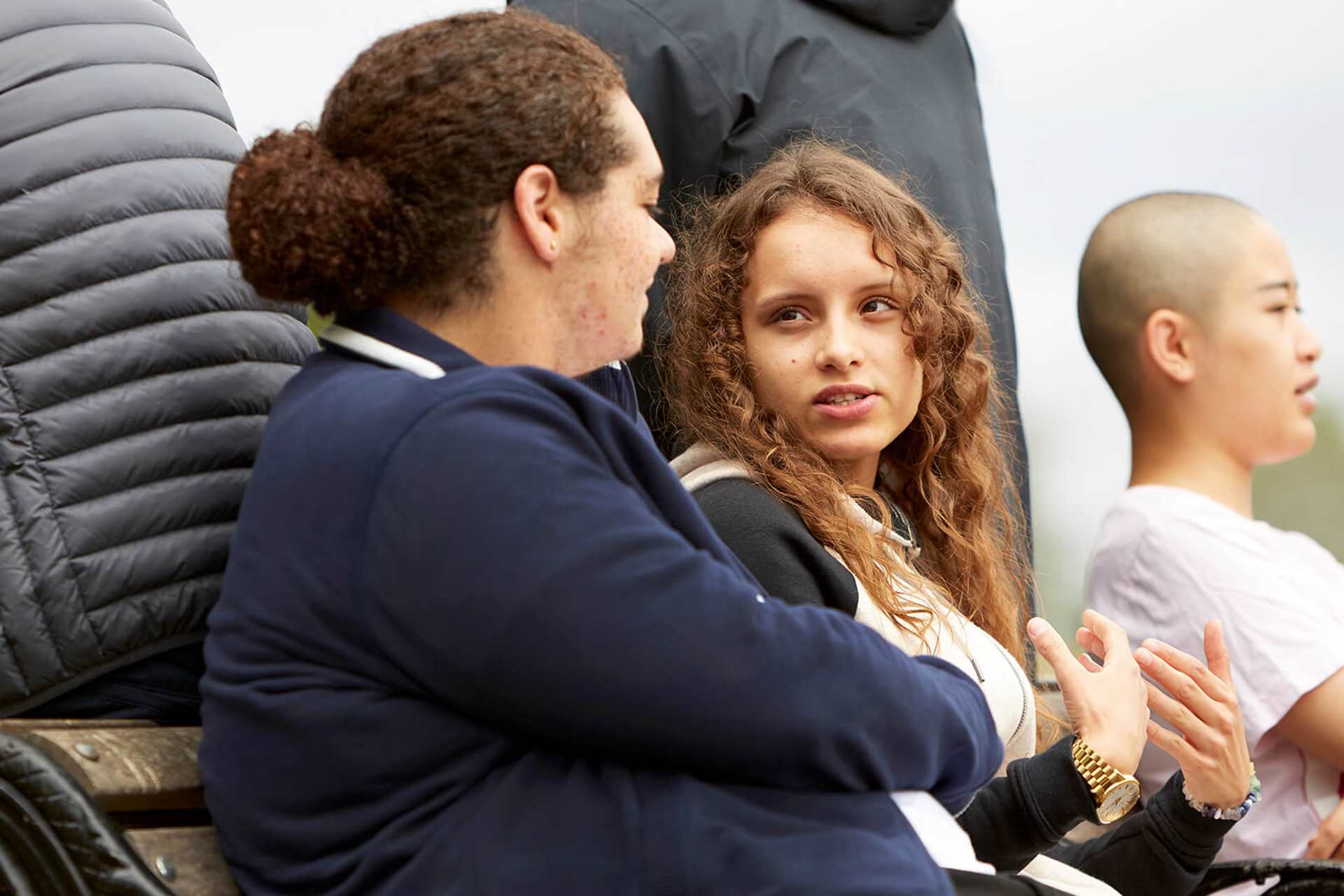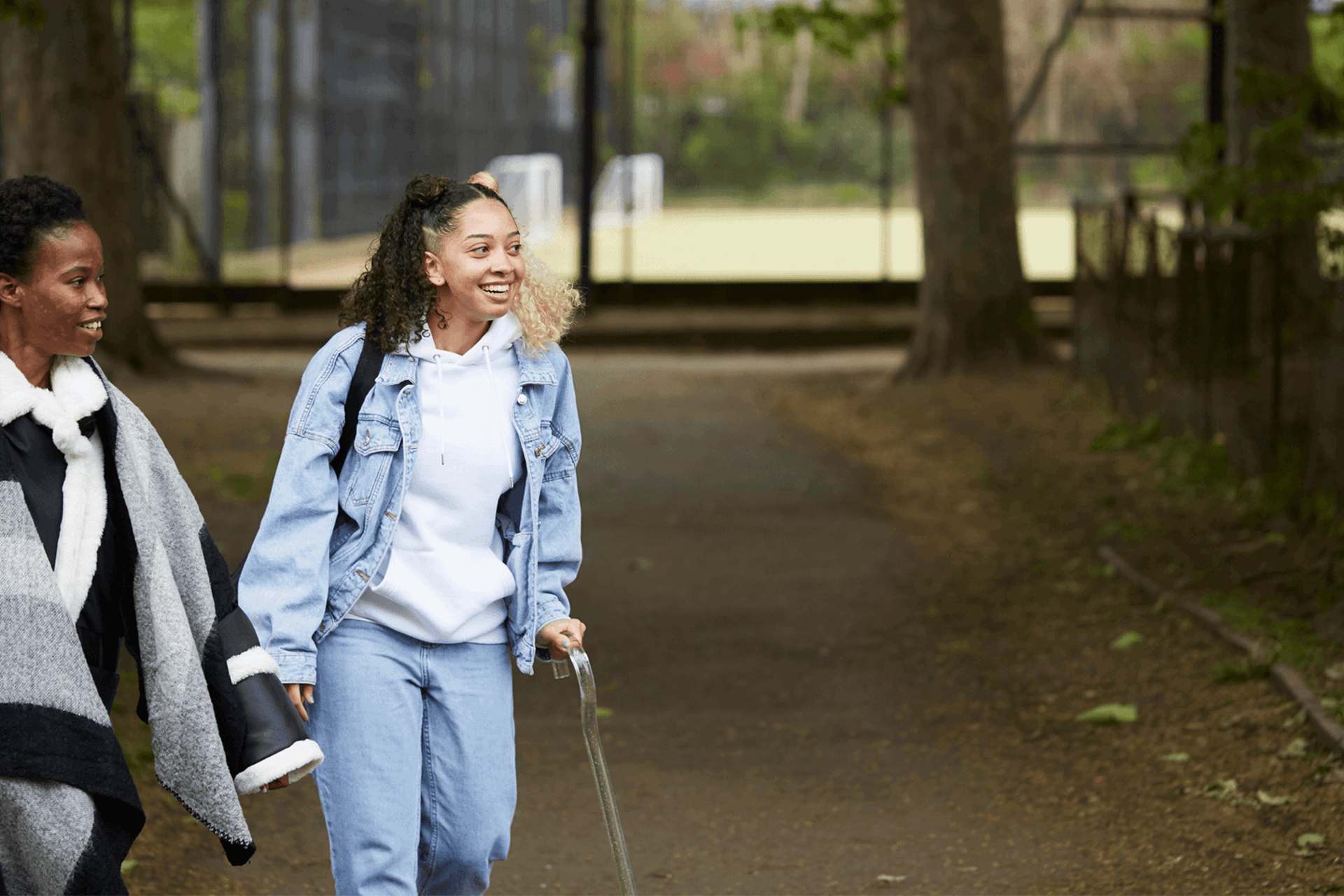Topics mentioned: disability and mental health, racism and mental health, self-esteem, cultural identity
About: For Simi, ableism creates false stereotypes about being Disabled. She wants to instead celebrate the beauty, history and pride of the Disability community.
To say you don't see my Disability is saying you don't see my culture and history and a big part of who I am. I believe that we shouldn’t ignore our differences. Instead, we should embrace diversity and celebrate it.
My name is Simi and I was born with a clearly visible Disability. I can’t get anywhere without a wheelchair and I have no mobility in my wrists and fingers, so my hands tend to flap around without much control. Some people try to compliment me by telling me that they ‘don't even see my Disability’. I thank them but tell them that there's no point denying it and no problem noticing it. I'm not ashamed to be Disabled, I'm proud to be. To say you don't see my Disability is saying you don't see my culture and history and a big part of who I am. I believe that we shouldn’t ignore our differences. Instead, we should embrace diversity and celebrate it.
“I want others to see me, not my Disability.” Why is this something you often hear Disabled people say though?
It is impossible for me to walk into a room and not be seen as Disabled. Before I even open my mouth to speak, I’m instantly coated in society’s ableist views of Disabled people. Most people who see me instantly assume things like: I can’t speak for myself, my opinions don’t matter, my life must be terrible, I’m ‘broken’ and in need of fixing, they’d rather die than be like me, no one could ever love me. To them, I’m less than human. All of this flashes through their mind before I even get to show people who I am. A fog of ableism obscures people’s view of me and that fog will stay no matter what I do.
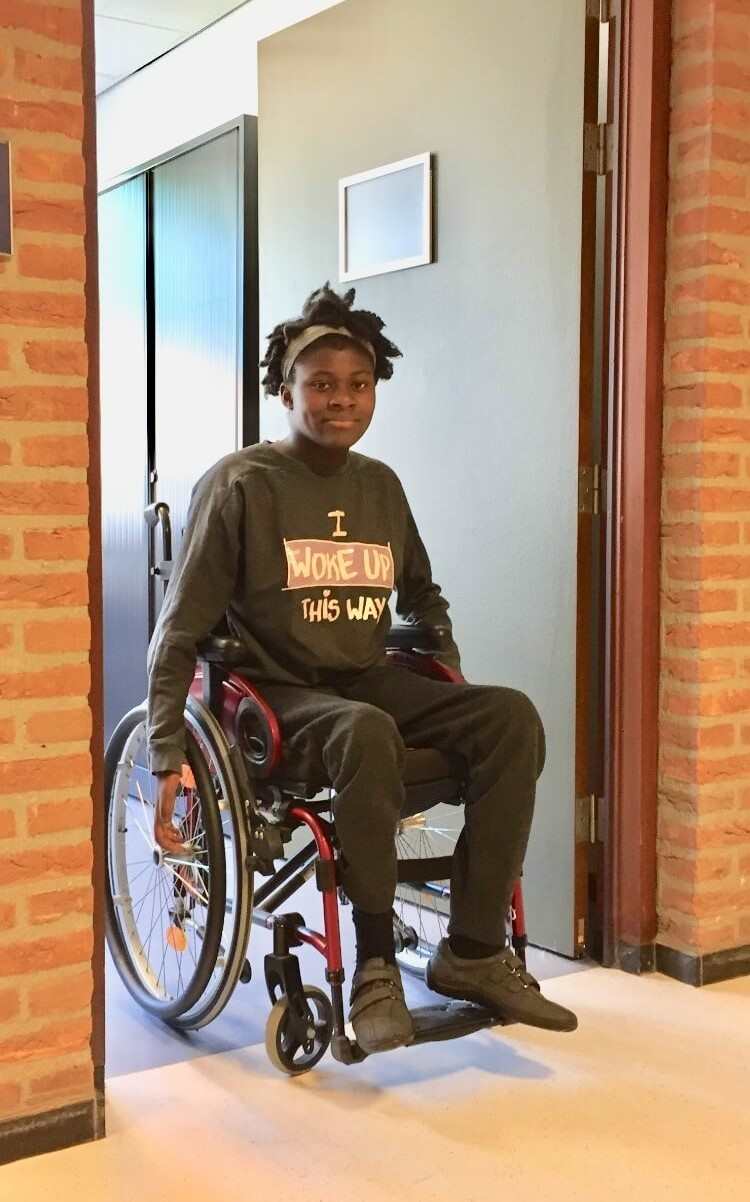
Simi in her wheelchair wearing a top that says, 'I woke up this way'.
When using dating sites, I used to only share images of me in my wheelchair on my profile. When I did, my profile would receive no responses. I even once had a dating app tell me that I’d swiped through every possible person on the app without receiving any replies. But when I changed my profile to only images that showed me from the waist up, I had multiple people respond positively and this led to many fruitful connections. And those people didn’t care when I told them I was Disabled after I’d gotten to know them more. By then, they saw the real me and not the ableist assumptions people associate with Disabilities.
To be honest, I don’t blame people for swiping away from my profile when they see my wheelchair. I would be more upset if this happened in a society that encouraged nondisabled people to be less ignorant about Disabilities. But our society doesn’t encourage this and a lot of nondisabled people aren’t even aware of how much ableism they hold in their minds. We’re all fed this lie from the moment we’re born that Disabilities are bad and that the negative stereotypes are true. Once nondisabled people get to know Disabled people in person, they realise that the stereotypes are false. The world needs more ableism awareness and nondisabled people need to do more to educate themselves about Disabilities. But society hasn’t reached that point of Disability acceptance yet.
So when Disabled people say: “I want others to see me, not my Disability,” I think what they specifically mean is that they want people to see them and not the ableist assumptions others immediately dress them in. At least that’s what I mean when I say it.
My body holds the echoes of Disability rights activists from throughout centuries who fought for the rights of people like me. I feel proud to show my connection to them through my immobile fingers and wrists.
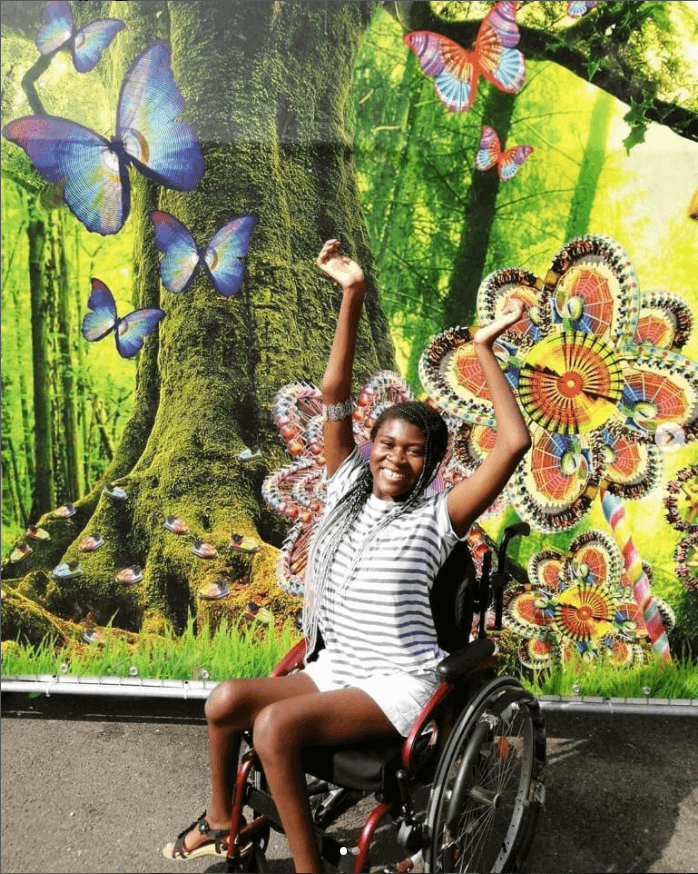
Simi in front of a colourful wall painted with image of trees and butterflies. She is smiling and holding her arms in the air.
But I still want you to look at me and acknowledge my flappy hands and wheelchair.
I am not ashamed to be Disabled. I think that my limbs are beautiful in their uniqueness. My Disability is a major part of who I am and deliberately ignoring it would mean overlooking a huge part of me. Everything my Disability has caused me to go through has made me stronger and I adore all of the different ways I’ve discovered to do things. Typing with a pen in my mouth is so cool and I’m impressed that I taught myself to be able to do so. My curled limbs also make me a part of the Disability community. My body holds the echoes of Disability rights activists from throughout centuries who fought for the rights of people like me. I feel proud to show my connection to them through my immobile fingers and wrists.
My body also holds the capability for crip creativity. Disability culture is just as magical as our heritage and history. We come alive in our wheelchair dancing, in our instrument playing whether its done without sight or even arms, and our art which we create with our mouth or feet. Disability culture knows no bounds. I’m proud that my body shows my link to Disability culture, heritage, and history too.
I’m Black as well and people understand that claiming to be ‘colour blind’ isn’t true acceptance because it is important to still see differences in skin colour so that we can understand and celebrate them. Claiming to not notice my afro hair isn’t a good thing because I’m proud of it. And Disability is the same. If nondisabled people feel as if they have to constantly skirt around even looking at the Disabled parts of us then they’re missing out on the amazing parts of Disability too.
So when people see me I want them to see me. A girl with Black skin, a dimpled smile, and flappy hands who uses a wheelchair. I don’t want you to see a broken body or a burden on society. Instead, I want you to see the beauty in my bent legs and how my hands hang on the edge of my arms like a waggling flag attached to a pole. And through them, see the history of both Black and Disabled people in my bones and both of those cultures in my heart. See a beautiful and proud Black, Disabled, queer person because that is who I am.
So when people see me I want them to see me. A girl with Black skin, a dimpled smile, and flappy hands who uses a wheelchair.
More information and advice
We have tips and advice to help you find the support you need. Take a look at our guides.
Where to get help
However you're feeling, there are people who can help you if you are struggling. Here are some services that can support you.
-
Scope
Provides practical information and emotional support for Disabled people.
- Opening times:
- 9am - 6pm, Monday - Friday; 10am - 6pm, weekends
-
Black Minds Matter
Connects Black individuals and families with free professional mental health services across the UK.
-
The Mix
Free, short-term online counselling for young people aged 25 or under. Their website also provides lots of information and advice about mental health and wellbeing.
Email support is available via their online contact form.
They have a free 1-2-1 webchat service available during opening hours.
- Opening times:
- 4pm - 11pm, Monday - Friday
